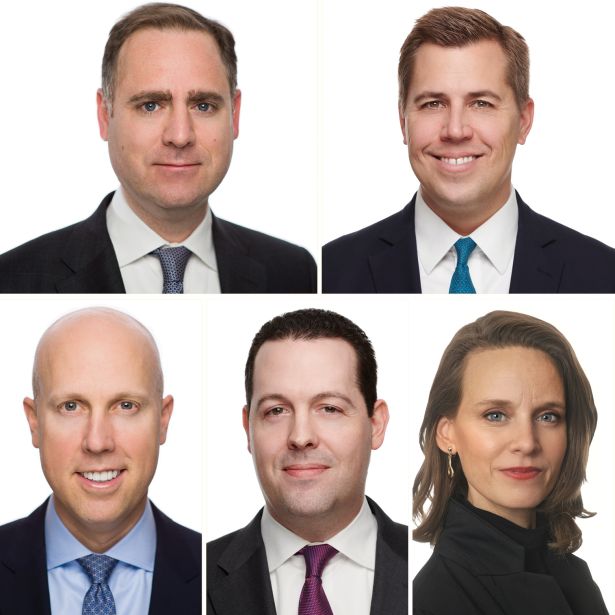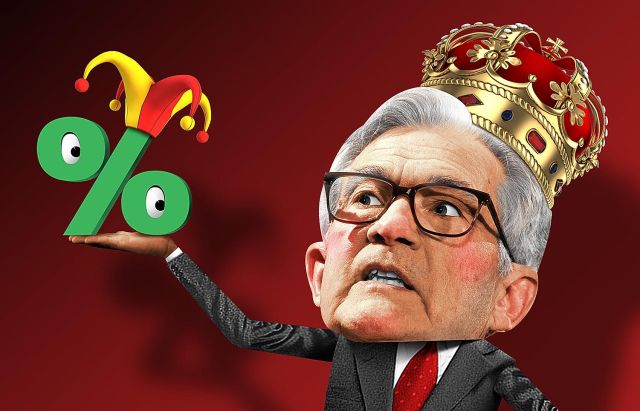
Clockwise from top left: Matt Salem, Joel Traut, Lindsey Wright, Rene Theriault, and Patrick Mattson.
Matt Salem, Joel Traut, Patrick Mattson, Rene Theriault and Lindsey Wright
Partner and head of real estate credit; partner and head of originations; managing director and COO; managing director and head of securities investing; managing director and head of investment services at KKR Real Estate Credit
Last year's rank: 10

KKR Real Estate Credit’s Matt Salem describes 2023 as “a year of transition” for the industry, and a time when lenders — his firm included — had to be a wee bit more cautious about the overall market environment.
Still, headwinds were no match for KKR’s platform, which racked up $4.4 billion of loans across 51 deals in the year ending March 1, 2024 — after screening $175 billion of lending opportunities — with an average loan size of $122 million.
In terms of lending preferences, the firm stuck to its knitting — creating a scarf that would be the envy of any investor and lender, if you will — originating predominantly multifamily (49 percent) and industrial (35 percent) loans.
As if that weren’t enough, KKR also remains one of the biggest investors in CMBS junior tranches — across both conduit B pieces and SASB deals — and invested more than $1.6 billion in real estate securities over the same time period.
In total, the platform’s assets under management reached an impressive $36.4 billion in December, with Salem’s team, which includes Joel Traut, Patrick Mattson, Rene Theriault and Lindsey Wright, meeting borrower demand as the market ebbed and flowed. That involved investing up and down the capital stack — providing fixed and floating, stabilized and transitional, and senior and mezzanine loans, plus some preferred equity.
Central to the team’s success over the past year has been the myriad solutions KKR has built out for borrowers through expanding its pools of capital from two in 2017 to seven today — including Global Capital, its insurance company, as well as bank capital. That diversity allowed the firm to stay consistently in the market, whatever came its way.
“Our diversity of capital has served us very well, because last year anybody that just had debt fund capital was on the sidelines,” Salem said. “Our ability to stay connected to the market through our insurance capital and bank capital earned us a lot of market credibility, and also deepened relationships.”
Indeed, roughly 46 percent of KKR’s originations may have been to existing customers, but they also took on plenty of new ones despite the market volatility, filling voids in the market and serving clients with the aforementioned diversified buckets of capital. “We have a core constituent of institutional sponsors that we will continue to service, but there’s still ability for us to expand there,” Salem said. “We saw several new clients this past year, especially those that were historically floating-rate borrowers who shifted to fixed-rate.”
In Dallas, KKR continued to build up its asset management capabilities at K-Star Asset Management, led by Wright, at an especially pertinent time. The K-Star team’s size has now doubled to 44 professionals and more than $45 billion of special servicing rights migrated its way in 2023.
While 2023 may have been a year of transition, 2024 is looking increasingly like the year of transactions. “I think this will be the year that transactions come back in the market and things start to feel more normal again finally,” Salem said.






